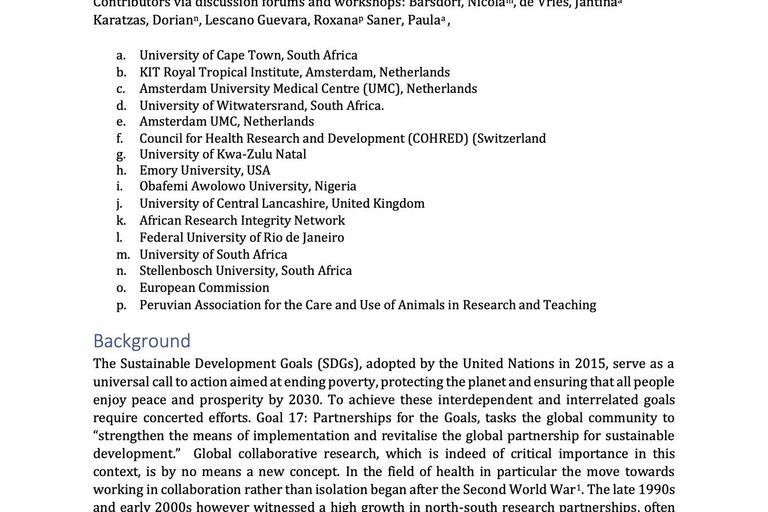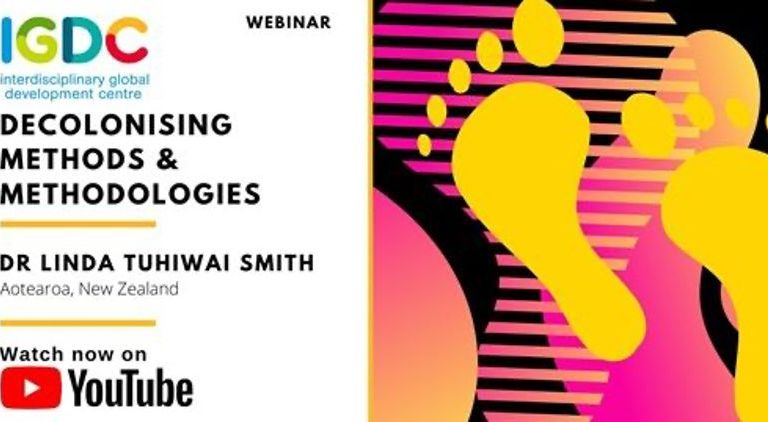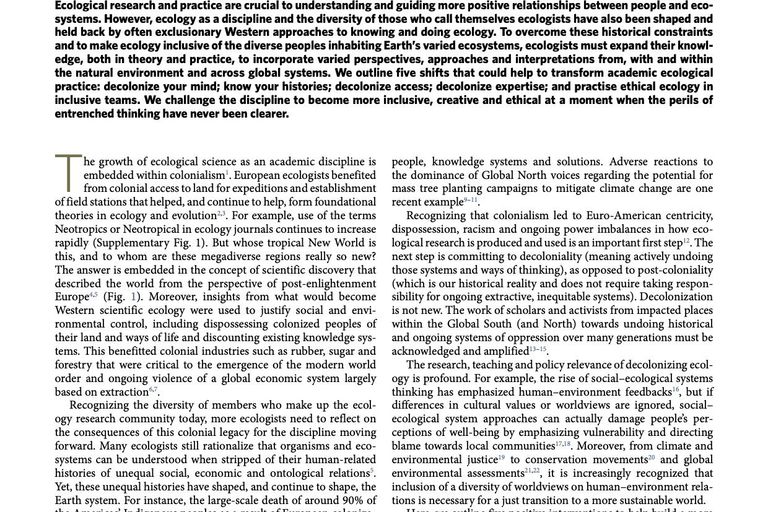Dazu gehört

Words Matter - guide to word choice for teaching in international cooperation
Does language shape thoughts, perception, and practice, or is it our own beliefs and actions that determine the language we use? In the field of international cooperation, the language that is often used can be problematic. We hope this guide triggers reflection and discussion on the structures of power, privilege, and bias which are inherent, yet often overlooked in international cooperation

Fostering Research Integrity through the promotion of fairness, equity and diversity in research collaborations and contexts: Towards a Cape Town Statement
The purpose of this draft is to offer a starting point for thinking through the issues at stake and to provide structure for the broader discussion to take place at the 7thWCRI at which this statement is to be formalised. The end goal of this process is to produce a statement that presents systemic and structural values and principles necessary aimed at promoting equitable, fair and responsible partnerships.

Decolonising Methods and Methodologies - Dr Linda Tuhiwai Smith
In this recorded lecture of the Interdisciplinary Global Development Centre at York University, Dr Tuhiwai Smith discusses decolonising research methods and provides reflections regarding the practical conduct of social science research methods. She talks about how to navigate and resist colonial legacies of knowledge production and resist extractivist models.

Decoloniality and anti-oppressive practices for a more ethical ecology
Christopher H. Trisos, Jess Auerbach & Madhusudan Katti

Research colonialism still plagues Africa
African researchers are suffering from power dynamics that favour global North collaborators. While some initiatives are helping build local capacity, others undervalue African collaborators. COVID-19 is aiding the creation of a foundation for future North-South collaborations. SciDevNet Blog by Laura Owings.
Bild: Copyright: Je'nine May